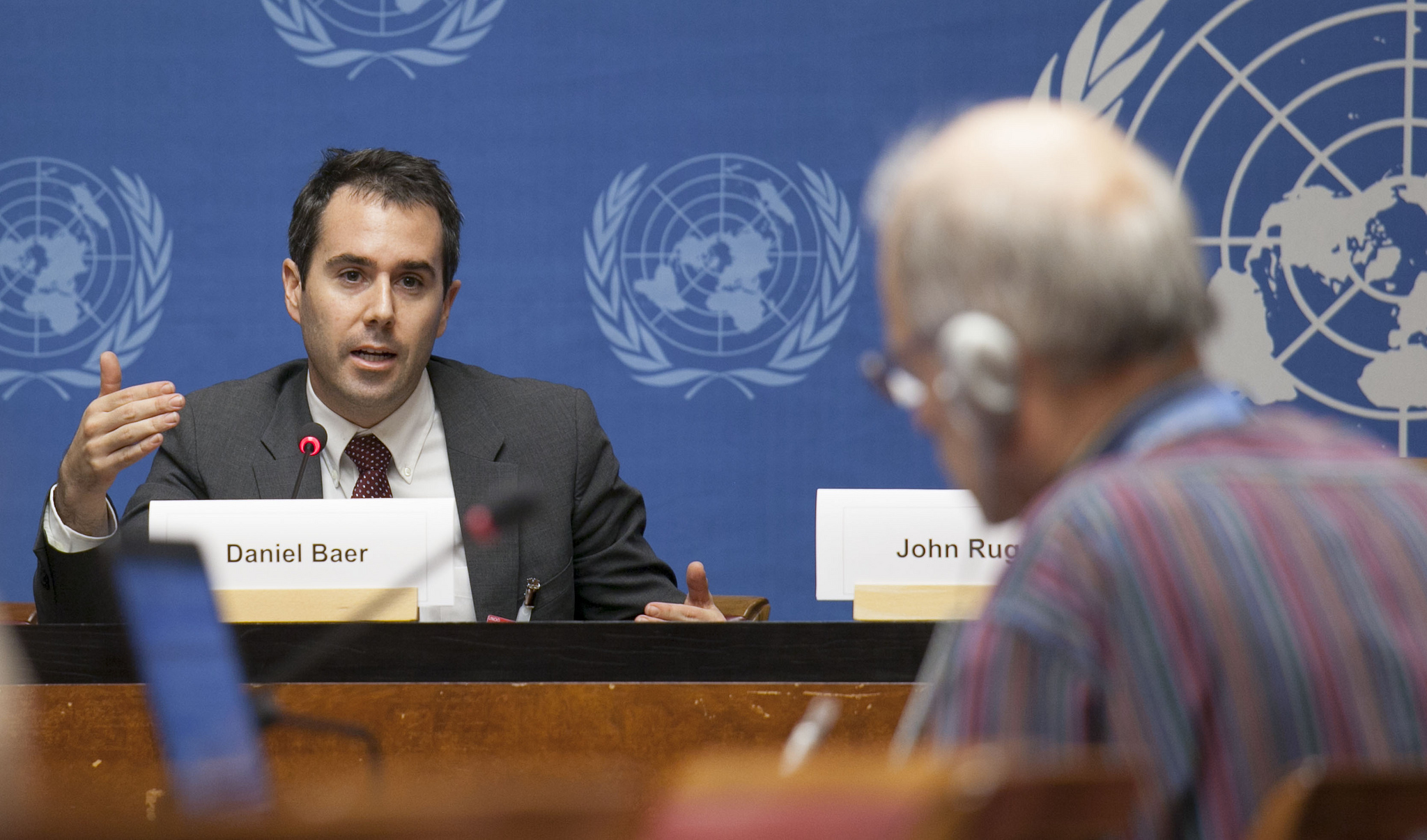In 2014, a United Nations resolution was passed establishing an Intergovernmental Working Group tasked with developing an international, legally binding treaty to regulate business and human rights. Three years later and discussions are still underway. What would such a treaty involve, and could it work?
Business and Human Rights

Since the 1970s, the UN has been working to create a regulatory framework that ensures businesses are not acting without regard for the impact of their operations on human rights. In the 1990s, such a framework became even more crucial with the growth of global business and cross-border economic activity. Today, 51 of the 100 largest economies in the world are corporations, a remarkable statistic which shows how much of an impact corporations have on the world around us. It is important, therefore, that they are responsible for making sure their operations do not negatively affect our fundamental rights.
Businesses are bound by domestic laws which provide certain protections for human rights. In the UK for example, businesses are prohibited from discriminating on the basis of characteristics like race and gender by the Equality Act 2010. They must also promote safe working conditions for their employees in accordance with the Health and Safety at Work Act 1974. As business operations span across borders however, domestic law becomes less effective – creating legislative gaps which can be exploited.
A milestone was reached in June 2011 when the UN Human Rights Council unanimously endorsed the UN Guiding Principles on Business and Human Rights. Although they are not legally binding, these principles place certain responsibilities on businesses to respect human rights.
Why the need for an international treaty?

The Guiding Principles have been positively received, but there are weaknesses:
- Adherence to the Principles has been slow and uneven from country to country. After six years, only 14 of the 47 countries who are members of the Human Rights Council have published their National Action Plans to implement the principles domestically.
- The Principles are not legally binding and seen by many as being “too weak”.
- The third pillar of the Principles, which says there must be access to a remedy for victims of business-related human rights abuses, has been largely unfulfilled due to legal obstacles.
In 2013, Ecuador, backed by a number of governments and over 100 NGOs, submitted a declaration to the Human Rights Council proposing the creation of a more robust and legally binding framework to hold businesses to account. This led to the creation of an Intergovernmental Working Group to do just that.
But it’s not that easy…

There has been skepticism as to whether a legally binding treaty is the right approach. The European Union, for example, voted against the creation of the Intergovernmental Working Group along with the UK and the US. It maintained that the focus should be on implementing the UN Guiding Principles which are already in place, rather than creating new rules. Also, the proposed treaty seems to only focus on large transnational corporations, meaning that abuses committed by small and medium-sized enterprises may be overlooked.
International treaties are only effective if they are agreed and ratified by the States involved, but this has been difficult to achieve in this area. For example, in 1983 the Commission on Transnational Corporations (set up by the UN) produced a draft Code of Conduct on Transnational Corporations, but this was abandoned in 1993 due to a lack of agreement. Thus, despite headway made by the Working Group, it is difficult to expect that a treaty will be agreed without the backing of the UK, US and EU.
But there is still hope. The obstacles to passing the treaty do not mean that it wouldn’t be beneficial to all players involved. This is especially true if the treaty were created through open consultation inviting participation from business, government and NGOs, as has been recommended. A legal framework could provide remedy to victims and give corporations clarity as to their obligations. Businesses could then manage their risk more effectively, and avoid scandal and reputational damage – something that most would probably want.
Follow the links below to learn more about business and human rights:
- Check out which companies are doing well for respecting human rights.
- Read our feature about why human rights for business is not working yet.
- Learn more about Business and Human Rights.







